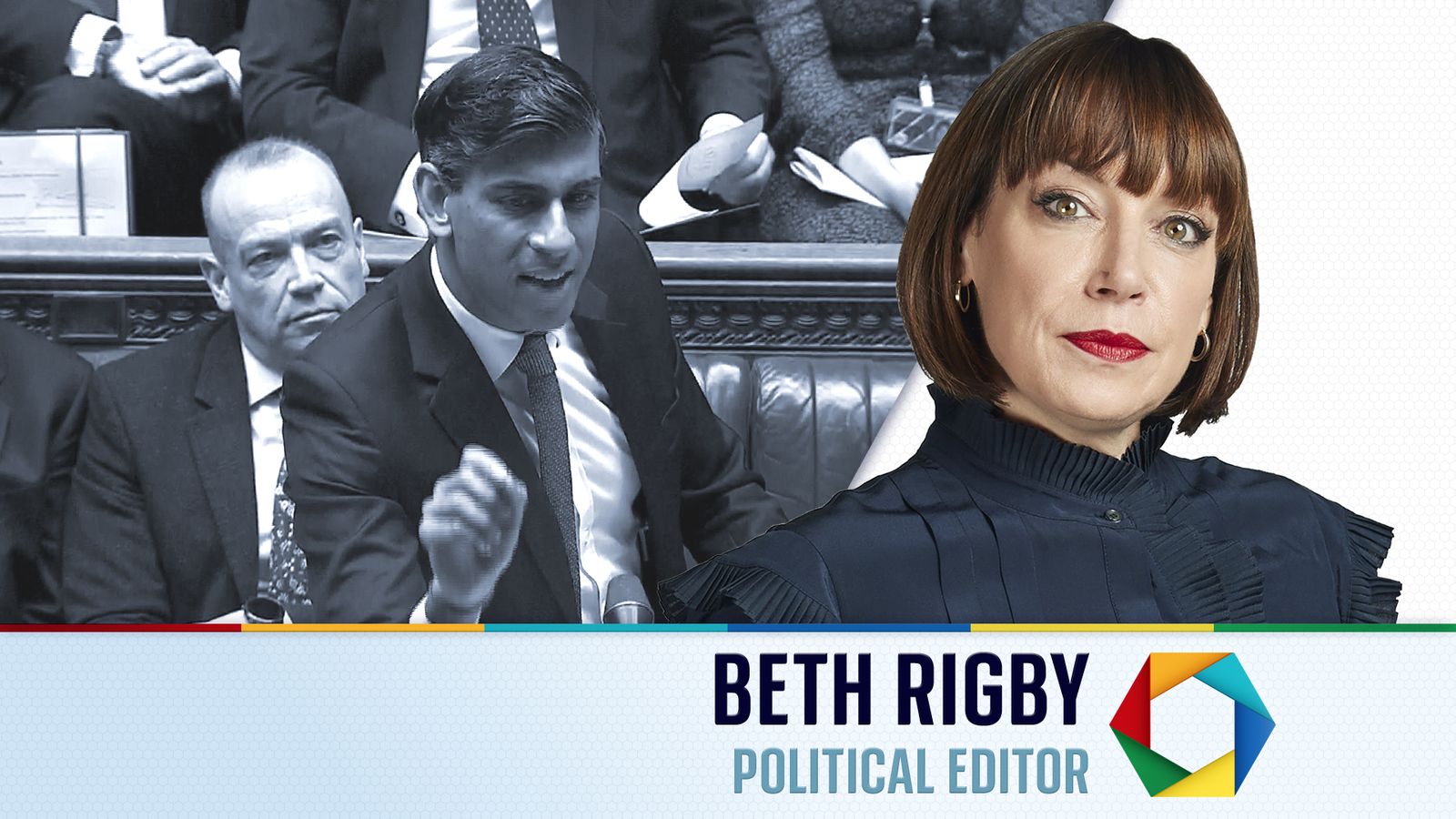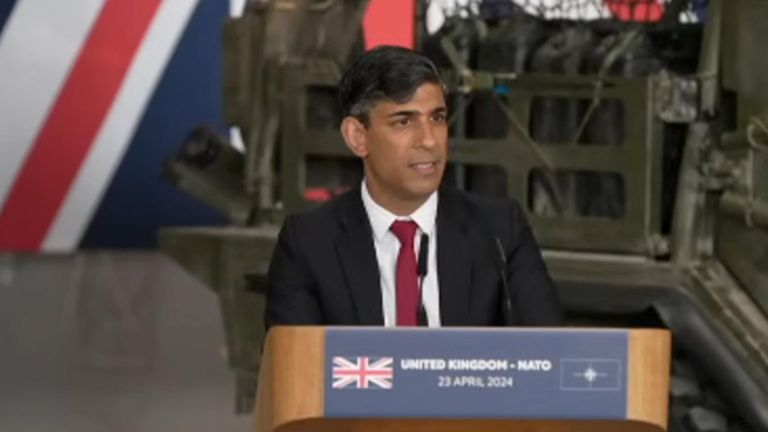On the plane from Warsaw to Berlin, Rishi Sunak was buoyant as he briefly chatted to the travelling pack.
Having delivered his hattrick of welfare reforms, the Rwanda bill and now the big lift in defence spending, he was a prime minister who clearly feels on the front foot after a torrid few months.
He looked like a man enjoying the job.
Politics live: Sunak warns Europe is at a ‘turning point’
Allies said the PM has spoken a lot about the spending decision with his current Foreign Secretary Lord David Cameron, who has “form” in prioritising these decisions – having committed to defence funding back in 2010 when he was prime minister in the face of competing spending demands.
“The PM’s thought about this a lot, which is why it’s so detailed today,” said one government source.
The big decision he announced in this election year to increase defence spending to 2.5% by 2030 was a choice.
He could have committed funding to schools, the NHS or local government. But, for this prime minister, it was the right choice.
It might not be the most salient issue for voters at home, but in his speech today, he left his audience in little doubt about the risks we were facing with the rise of authoritarian regimes such as China, Russia and Iran, working together to undermine out democracies and way of life.
But equally, Mr Sunak made this commitment knowing all too well that it may not be him that has to deliver it.
And while the sum is really big – £75bn of spending over the next six years – for this year, the only commitment will be £500m for Ukraine, with the remainder of the funding coming in the next parliament.
On the assumed baseline, the government had already allocated the additional funding for 2.3% defence spending annually in the next parliament.
Increasing that to 2.5% by 2028/9 will, in cash terms, require £4.5bn of funding, which government says will be paid for through £1.6bn from the annual research and development budget and £2.9bn from 70,000 cuts to civil servant jobs, taking the workforce back to pre-pandemic levels.
It is a clear political trap for Sir Keir Starmer, who spent much of his early years as Labour leader trying to undo the damage done by his predecessor, Jeremy Corbyn – who did not support NATO.
Sir Keir has sought to re-establish Labour’s security credentials in recent years, most notably in his stance on the Israel-Hamas conflict, in which he has made sure he sticks to the US position and stands with the government on matters of national security.
So this is a big test.
Sir Keir said recently that he wanted to commit to the 2.5% of “when resources allow”, giving a future Labour government some wriggle room as it contemplates how to allocate scarce public resource.
Because, as the polls stand, Mr Sunak won’t be the prime minister having to deliver on defence spending pledges, and already Conservative politicians are challenging Labour to commit to their plans, knowing all too well that it reduces the party’s manoeuvrability in government should it win the general election.
And this is a hard call for the Labour leader, who has been desperate to present himself as a politician who also puts the security of the nation above all else.
In Poland, Mr Sunak evoked Winston Churchill, saying: “We did not choose this moment, but it is for us to meet it.”
He also said to lead was to make choices, and his choice was to protect his citizens above all else.
How can Starmer refuse to meet the commitment?


